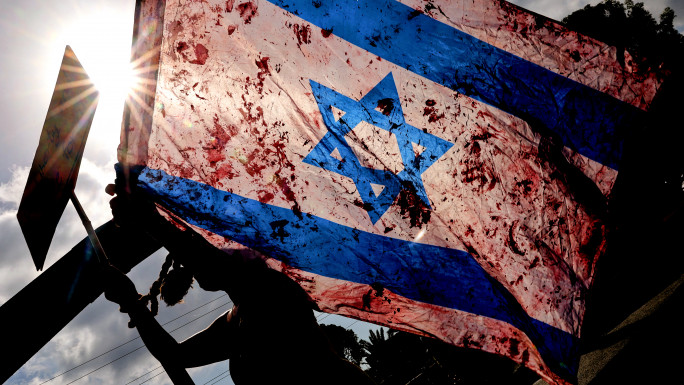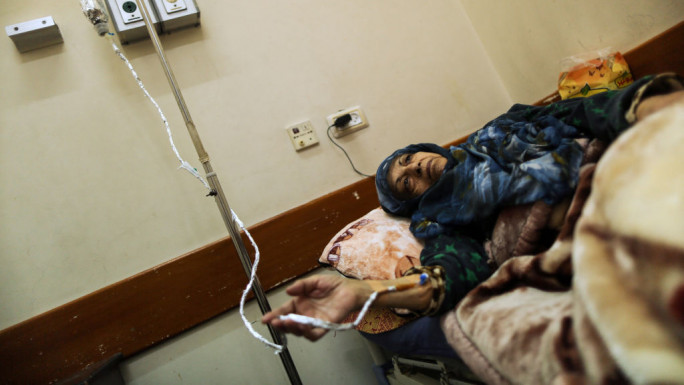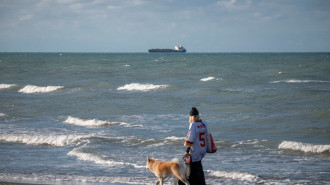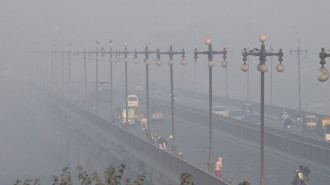Israel tortures Gaza workers, expels them back to battered enclave
They arrived at the border crossing with the Gaza Strip in a constant stream, many of them exhausted and still bearing the scars of time spent in an Israeli jail.
Some had raw wrists from being handcuffed and still had prison numbers tied round their ankles.
On Friday, Israel began to forcibly repatriate to the besieged and battered Palestinian territory thousands of Gazans who had been working in Israel.
They were some of the 18,500 Gaza Palestinians who had visas to work in Israel, but whose right to do so was rescinded three days after the Hamas attacks of October 7.
On that day, hundreds of militants streamed across the border and attacked southern Israel, killing more than 1,400 people and abducting at least 240 hostages, according to Israeli officials.
In response Israel has brutally and indiscriminately bombed the Gaza Strip, killing 9,227 people, most of them women and children according to Gaza's health ministry
The besieged coastal strip packed with 2.4 million people has been cut off from drinking water, electricity and food.
On Friday, some of the Palestinian workers being sent back there said they did not know if their families were alive or if their houses still stand.
Israeli torture
"For 25 days we've been in prison and today they brought us here," Nidal Abed told AFP.
"We had no idea what was happening in Gaza, or what the situation is."
At the border post of Karem Abu Salem the returnees stood in line. None carried belongings other than the clothes they wore.
Yasser Mostafa said he only had time to pull on a cardigan when he was detained during the opening days of the war.
"The police came to where we were sleeping and took us," he said, his face drawn.
"They put us in a camp that wouldn't even be good enough for animals," he said, adding that "they tortured us with electricity and set dogs on us".
Further down the line, some men held out their hands to show open wounds, their ankles still bearing blue plastic bands stamped with numbers.
One read "061962", another "062030".
A man held out his wrists that still bore traces of cuts and bruising from restraints.
Ramadan al-Issawi said he had spent "23 days in Ofer", an Israeli prison in the occupied West Bank.
"I was in a detention centre with hundreds of other prisoners," he told AFP in a shaking voice. "We told ourselves that we could die at any moment."
"They gave us just enough to eat and drink to survive, but we knew nothing about what was going on outside," Issawi said.
"We're destroyed psychologically - we don't know if our families are alive or dead."
The pain on his face was visible, his forehead dripping with sweat.
"If we had at least been here during the war, we could have died with our children," he added.
An emaciated-looking Sabri Fayez, who was heading for the centre of devastated Gaza to join relatives he last saw weeks ago, said he felt as if he was emerging from a horror movie.
"It was a horror film that never ended and replayed incessantly -- intelligence services, interrogation, dogs set on us, the machine guns...
"We're just workers, and were only trying to make a living," he said, waving his hands.
"Every minute, we prayed to die and be done with it."
Behind Fayez, more expelled workers kept on coming.
In front of them, a few men sitting on a horse-drawn cart edged further into Gaza towards the sound of explosions.
![Some of the workers collapsed as soon as they crossed the border [AFP/Getty]](/sites/default/files/styles/large_16_9/public/2023-11/GettyImages-1760556463.jpg?h=199d8c1f&itok=73WxUI0T)




 Follow the Middle East's top stories in English at The New Arab on Google News
Follow the Middle East's top stories in English at The New Arab on Google News


![Ajyal Film Festival [Getty]](/sites/default/files/styles/image_330x185/public/2185207539.jpeg?h=a5f2f23a&itok=kvgfYE_p)